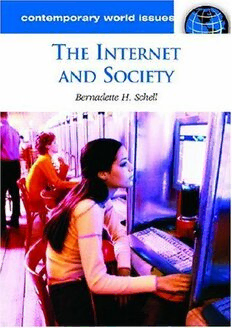
The Internet and society: A reference handbook PDF
332 Pages·2006·3.782 MB·English
Most books are stored in the elastic cloud where traffic is expensive. For this reason, we have a limit on daily download.
Preview The Internet and society: A reference handbook
Description:
An examination of the social impact of the Internet, this volume explores political, social, technical, legal, and economic controversies in a manner accessible to the general reader.The Internet has proven a mixed blessing. Yes, it is the most effective communications tool ever invented. Yes, it has leveled the playing field for people in developing countries. But it has also opened the door to a new breed of tech-savvy criminals who use the Internet for child pornography, identity theft, and online fraud.Today more than one billion people worldwide use the Internet for communication, shopping, business, and research. But in the last five years they have lost over $10 billion to malicious computer attacks alone. Is there a way to keep the benefits and avoid the problems?The Internet and Society: A Reference Handbook explores both the positive aspects of the Internet and its darker side. Topically organized, it chronicles the background and history of the Internet, with a focus on the 1960s and beyond. Through analysis of the latest research in sociology, political science, economics, law, and computer science, it examines problems, varieties of cybercrime, controversies, and solutions related to the Internet's phenomenal growth. It also illuminates the likely directions of the Internet’s future and the ongoing challenges it presents to societies around the globe.Features• A glossary of key terms, such as algorithm, ARPAnet, Hyper Text Markup Language, identity theft, Internet protocol, malicious mode, and Moore's law, helps readers find their bearings in the high-tech world of the Internet• Bibliographical sketches of 20 key personalities—both positive and negative—in Internet history bring this high-tech story to lifeHighlights• Provides insights into the future growth of the World Wide Web and potential new online services that will soon be available to citizens around the globe• Offers easy accessibility to individuals unfamiliar with computing and networking terms• Includes fascinating case studies on cybercriminals as well as legislation intended to curb cybercrimes
See more
The list of books you might like
Most books are stored in the elastic cloud where traffic is expensive. For this reason, we have a limit on daily download.
